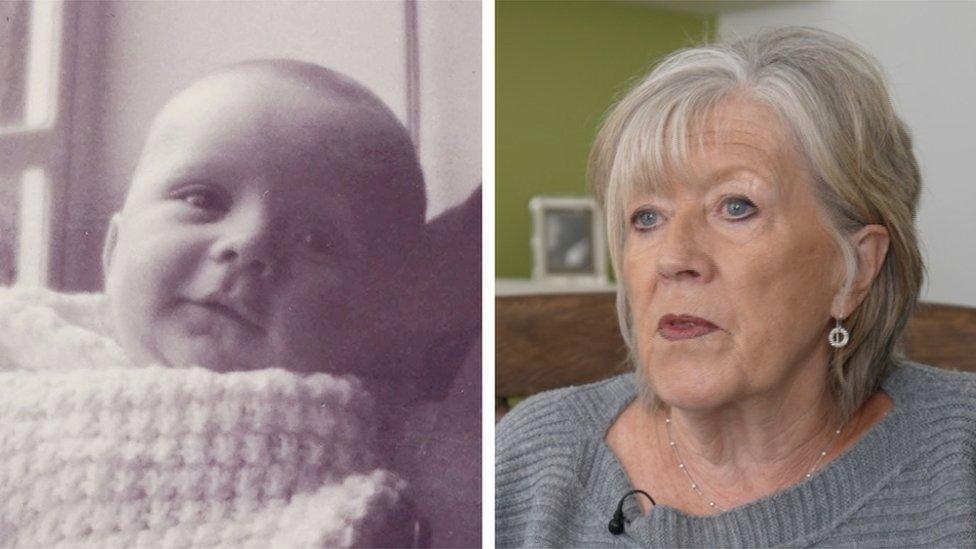Parents with learning disabilities in Wales 'set up to fail', says charity
- Published
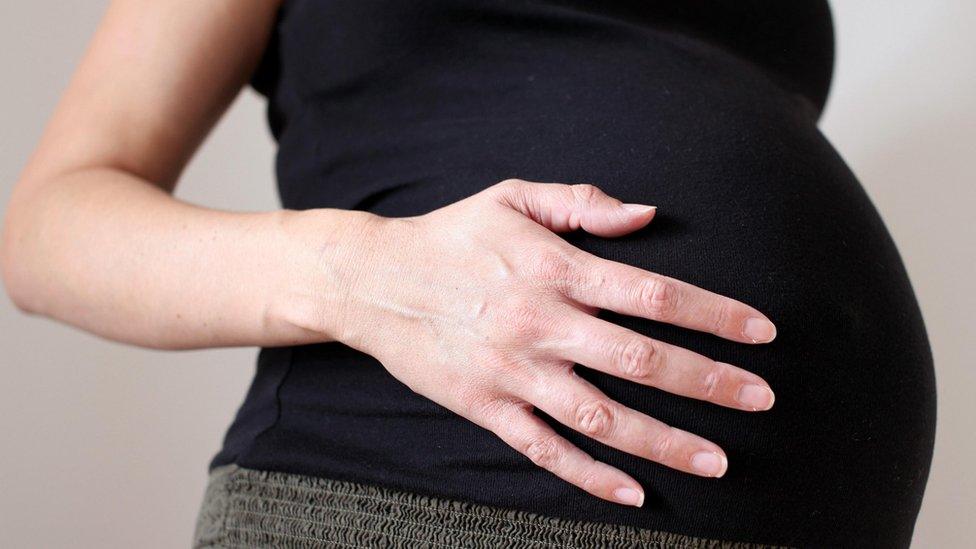
Support for parents is poor, Learning Disability Wales says
Vulnerable parents with learning disabilities are "set up to fail" and risk losing their children from a lack of support, according to a charity.
Learning Disability Wales warned the pandemic had reduced opportunities to learn vital parenting skills, which it said could see many children unnecessarily taken into care.
There is currently no guidance to help vulnerable parents in Wales.
The Welsh government said it will publish guidance in the autumn.
Samantha Williams, policy and communications manager at Learning Disability Wales, said support for parents with learning disabilities was poor, with a lack of training for social workers.
She said vulnerable families not only needed access to parenting courses, but also enough time to learn under supervision, as they might take longer to acquire new skills and have difficulties in retaining them.
However she said "the clock is always ticking" for parents, who soon felt the odds were stacked against them.
"There is a timetable of 26 weeks for care proceedings... an incredibly short period of time for a parent with a learning disability to be able to learn all the necessary skills and demonstrate significant change in their parenting abilities in order to be able to keep their children," said Ms Williams.
"This timetable can in fact be extended in certain circumstances if the court is convinced that it is necessary but in reality this rarely happens."
Ruth Northway, professor of learning disability nursing at the University of South Wales, said the Covid-19 pandemic had had a significant impact on people with learning disabilities.
She said it had "both highlighted and increased many of the inequalities they experienced pre-pandemic", such as healthcare and social isolation.
"There are models of good support for parents with learning disabilities but unfortunately these are not universally available," said Prof Northway.
"Such support needs to be tailored to the needs of individual families and to take account of the wide range of factors that can impact on parenting such as poverty, housing, access to social networks, access to information and discrimination.
"It may also be required in an ongoing basis and/or at various points during the family life cycle when new challenges occur, for example, a child starting school."
Wales currently has the highest proportion in the UK of children being looked after away from home.
There are 7,170 children being looked after away from home in Wales, which is 1.14% of all children.
The rate has steadily increased since 2003, when it was 0.64% - while the current UK average is 0.72% of children.
The Welsh government said reducing the number of children in care was a priority, but the numbers of parents with learning disabilities is not recorded by social services departments across Wales, or centrally.
"Wales has a very high rate of looked-after children and we believe that by providing the right support to parents with a learning disability, these figures could be reduced and more families could stay together," said Ms Williams.

'I was simply judged not capable'
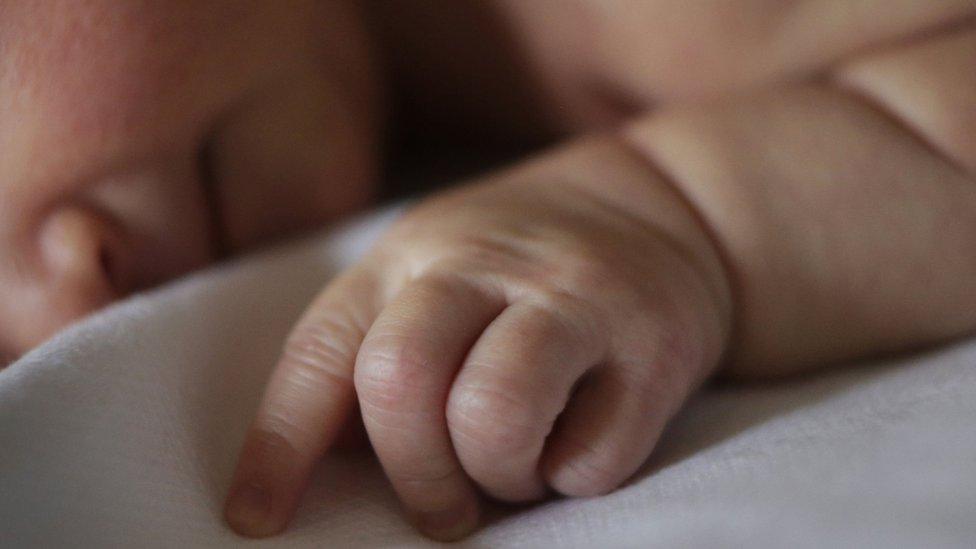
One parent says they feel helpless and no-one listens
One parent from south Wales, anonymous to protect their child's identity, said: "My child was taken from me at the hospital and I am only allowed supervised contact.
"I was never given a chance or any training to help me keep my child. I was simply judged not capable.
"My ex is a heavy drinker, is violent and has been to prison, yet he is allowed contact with our child four days a week from Monday to Thursday.
"I feel really helpless as this is so unfair, but there is nothing I can do. No-one listens to me."
Another said: "I had an assessment over five hours in a room at the library.
"It was hard to keep my child occupied in a strange place under constant watch. She got bored.
"This made me really nervous as I was afraid of doing something wrong, and then I would be judged, even though it wasn't a natural situation."

What can social workers do?

Guidance is set to be introduced in Wales, following after England and Scotland
Society's view seems to be that a learning disability is an automatic barrier to raising a family, said Ms Williams.
"Parents with a learning disability are all too often set up to fail," she said,
"Society as a whole often views them negatively and unfortunately so do some professionals.
"There is often an automatic assumption that a person with a learning disability will not be able to look after a child safely but there is no evidence that poor parenting is directly linked to a parent's IQ."
Ms Williams said more needs to be done to communicate well with parents so they understand the "extremely complicated, confusing and scary" child protection process - such as making complex information easier to understand.
"Support is often not tailored to their individual needs and no allowance is made for the fact that their impairment means they take longer to learn new things and also makes it harder for them to retain information," she added.
"Even with the right support, the clock is always ticking as the 26-week timescale for care proceedings is rigidly adhered to."
'Keeping families together'
Guidance for social workers in England was first published back in 2007 and updated in 2016, while Scotland has had guidance since 2009, updated in 2015.
But there has so far been no guidance for professionals working with parents with a learning disability in Wales.
Welcoming the Welsh government's decision to introduce guidance, Ms Williams said there was hope for families if the right support could be delivered.
"Keeping families together wherever possible is extremely important, as research shows the negative impact on both children and parents when children are removed," she said.
Prof Northway said the guidance should help professionals in identifying families where a parent has learning disabilities and needs support.
She said "effective and timely support" could help more families to stay together.
A Welsh Government spokesperson said: "Social workers, together with the whole social care sector, have delivered vital services during the pandemic. Despite the pressures, local authorities have maintained high-quality services to vulnerable children and families.
"We have commissioned the University of South Wales to develop new national guidance, which will set out how social workers can better support parents with learning disabilities. We hope to publish this guidance in the autumn."
The Association of Directors of Social Services in Wales also welcomed the new guidance, but added that having a learning disability is "rarely the only concern and reason for parents being referred to children's social care services and for children to be taken into care".
"Supporting families to prevent family breakdown is always a priority for social services," said ADSS Cymru in a statement.
"ADSS Cymru recognise that parents with a learning disability can have additional support needs, and that the pandemic has presented a range of challenges to all families.
"Children's services alongside their partner agencies and early help services will do their utmost to identify need early and prevent family problems from getting worse."
- Published8 June 2021
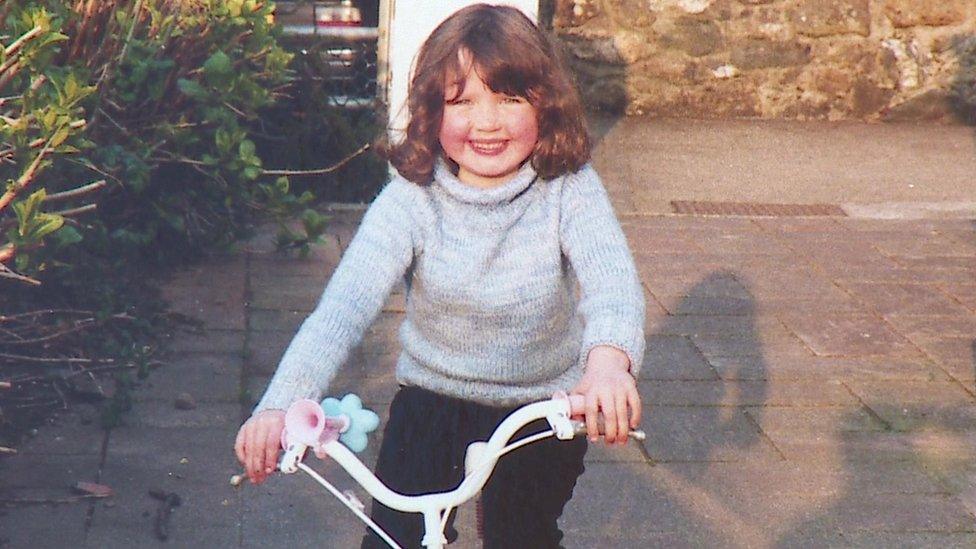
- Published1 June 2021

- Published27 November 2017
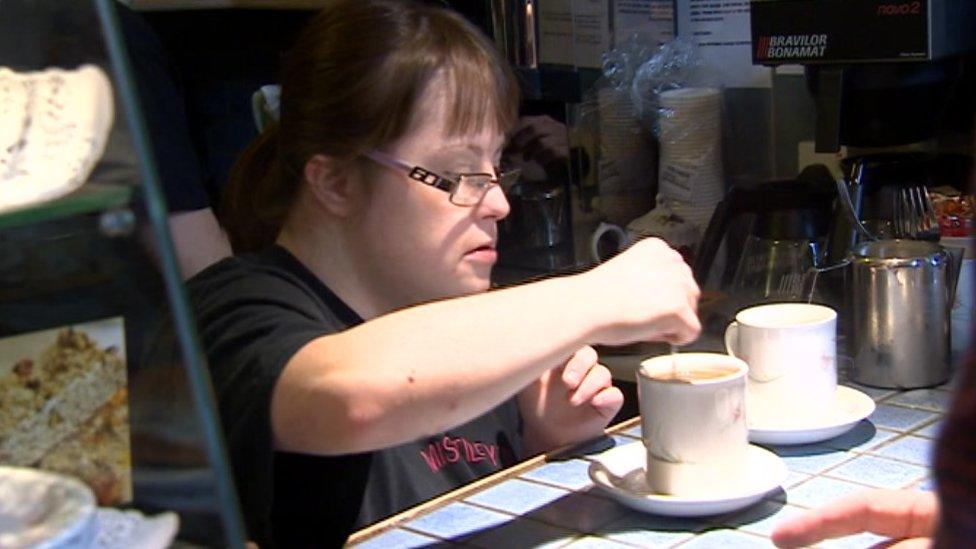
- Published25 February 2021

- Published27 February 2020
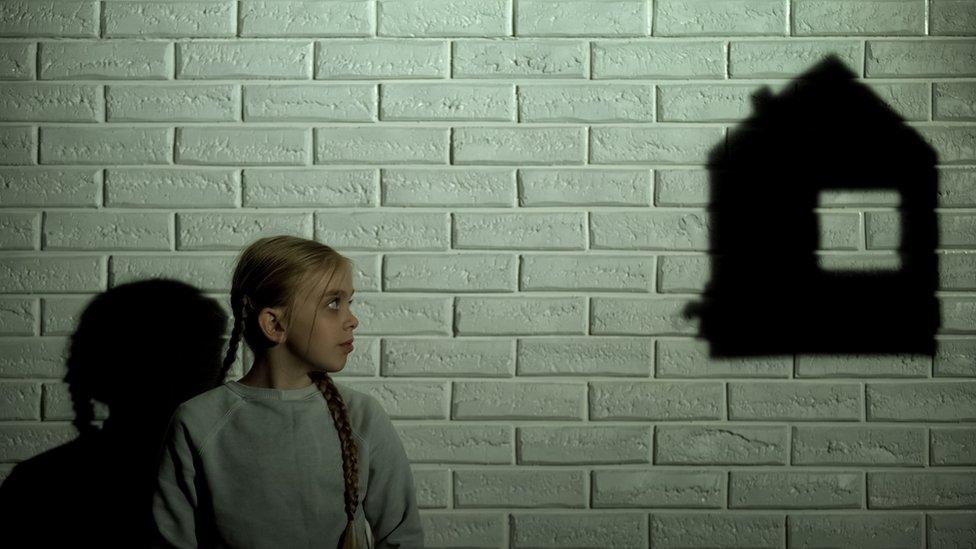
- Published26 May 2021
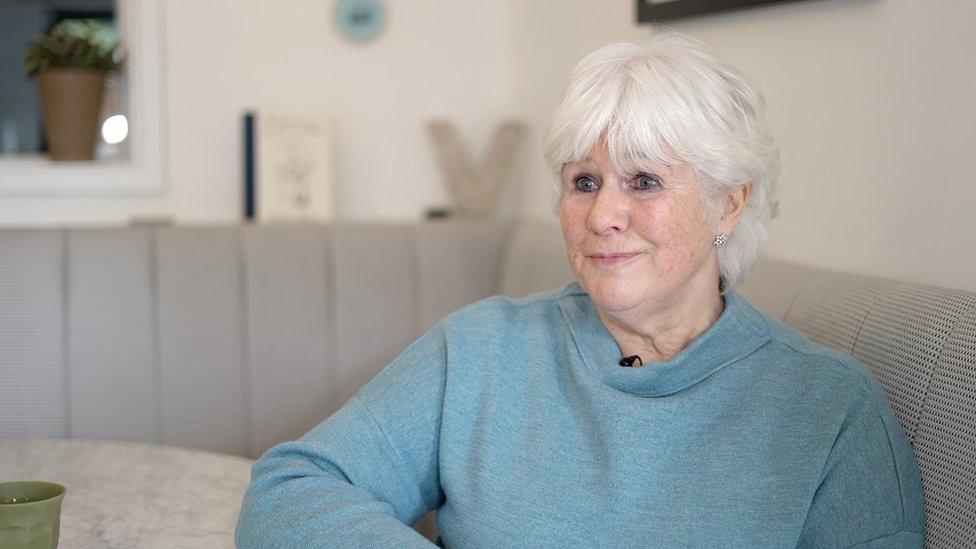
- Published27 May 2021
